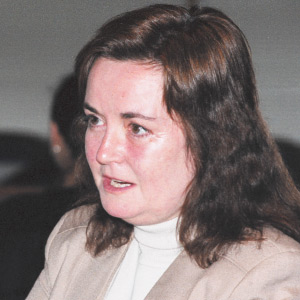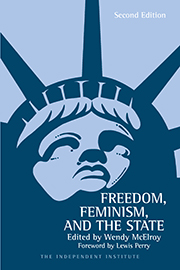Were HIV-positive infants and children in the Manhattan foster care system used as guinea pigs in medical experiments? That question is at the heart of a potential scandal that could propel child welfare systems in North America toward greater transparency and accountability.
On Feb. 29, The New York Post exposed the problem in three articles by Douglas Montero: The first, “AIDS Tots Used as ‘Guinea Pigs,’” claimed that about 50 children had been used in 13 medical experiments, some involving high doses of AIDS medications, at Manhattan’s Incarnation Children’s Center. The Post later revised the number to 100 in the light of data released on March 1 by New York City’s Administration for Children’s Services, following a review of their files.
The second article, “I Took Girls Out of Hell and City Stole Them Back,” was the story of Jacqueline Hoerger, a pediatric nurse and foster mother to two girls from ICC, where she had worked from 1989 to 1993. Social workers took the girls from Hoerger because she refused to administer AIDS medications that she learned were “highly toxic and mostly untested in children.”
At ICC, Hoerger says she witnessed experimental treatment “on HIV-infected children, some as young as three months.”
In the third piece, an op-ed entitled “Defenseless Kids’ Guardian Agency Won’t Come Clean,” Montero posed his questions for the ACS: For example, “how many children were involved?” And, to whom could the children “call for relief if researchers prodded too hard, hurt them, made them cry or made them sick?”
In other words, what authority supervised the treatment of children who had no parent or foster parent to render consent?
The ACS assigned the children to the studies, but the agency lacks the medical expertise to evaluate whether the application of an experimental treatment is appropriate or abusive. Moreover, according to Anat Jacobson, a spokeswoman for the Public Advocate’s Office that serves as a watchdog to the ACS, her agency had no knowledge of the experimental treatments.
Jacobson expressed concern that the ACS might have “just unilaterally signed up these kids.”
The ACS could answer Montero’s questions, but instead, it seems to be invoking privacy concerns in order to remain silent. When questions involve aggregate numbers and protocol, however, there is no privacy issue. And there are well-established methods for discussing medical studies that preserve the anonymity of subjects.
In the presence of official silence, the facts alleged gain credibility. What are they? A good place to begin is with the ICC, which is run by the Archdiocese of New York’s Catholic Charities and was opened in 1989 to provide residential and outpatient medical care for HIV-infected children. The ICC has conducted dozens of experimental medical studies, most of which were funded by federal grants or—more controversially—by pharmaceutical companies.
One of the ICC’s experimental studies, sponsored by the National Institutes of Health, was entitled “HIV Wasting Syndrome.” Its purpose was “to see how beginning or changing anti-HIV medications affects the body composition ... of HIV-infected children.”
No one could fault researchers for administering appropriate drugs to sick children and monitoring the results, especially when the children might not otherwise receive treatment. But questions immediately arise concerning studies that purportedly tested the “safety,” “tolerance” and “toxicity” of AIDS drugs. Or one that tested the reaction of HIV-positive children, ages six to seven months, to the injection of two doses of measles vaccine. The ICC used to offer descriptions of such experiments on its web site, which became abruptly inoperative in the wake of the Post’s investigation. Without data, how can the validity be judged?
News of the experiments is already fueling outrage. “They are torturing these kids, and it is nothing short of murder,” Michael Ellner of Health Education AIDS Liaison declared of the experiments that ended in 2002.
Biochemist Dr. David Rasnick, an expert in AIDS medication, reviewed the AIDS drugs administered to the children and concluded that alone, or in combination as they often were administered, the drugs had “acute toxicity which could be fatal.”
ACS must be forthcoming. Silence or bureaucratic answers aren’t going to work this time. Driven by criticism by officials such as New York City Councilman Bill DiBlasio, the New York Health Department is beginning to investigate.
Moreover, the “scandal” has hit the international press. A headline in last week’s Japan Today announced, “HIV-infected kids in New York used as ‘guinea pigs.’” A site in France and a newspaper in the U.K. echoed the accusation. Too many eyes are watching.
It is usually parents who look out for children—comfort their tears, shield them from abuse, and make wrenching decisions about their welfare. Who comforted and protected the parent-less, HIV-positive infants and children at ICC? I hope there were hospital staff who held each sick child in their arms and wanted nothing more than to heal the pain.
But data has disappeared. Archdiocese spokesman Joseph Zwilling reportedly told journalists that he did not know why the experiments stopped in 2002 or whether any of the children had died. Nicholas Scoppetta, who headed ACS during the experiments and has since left the agency to become New York City’s current fire commissioner, will not comment.
Hopes are not enough. For once, a child welfare system must have the courage and decency to open itself to public scrutiny.









